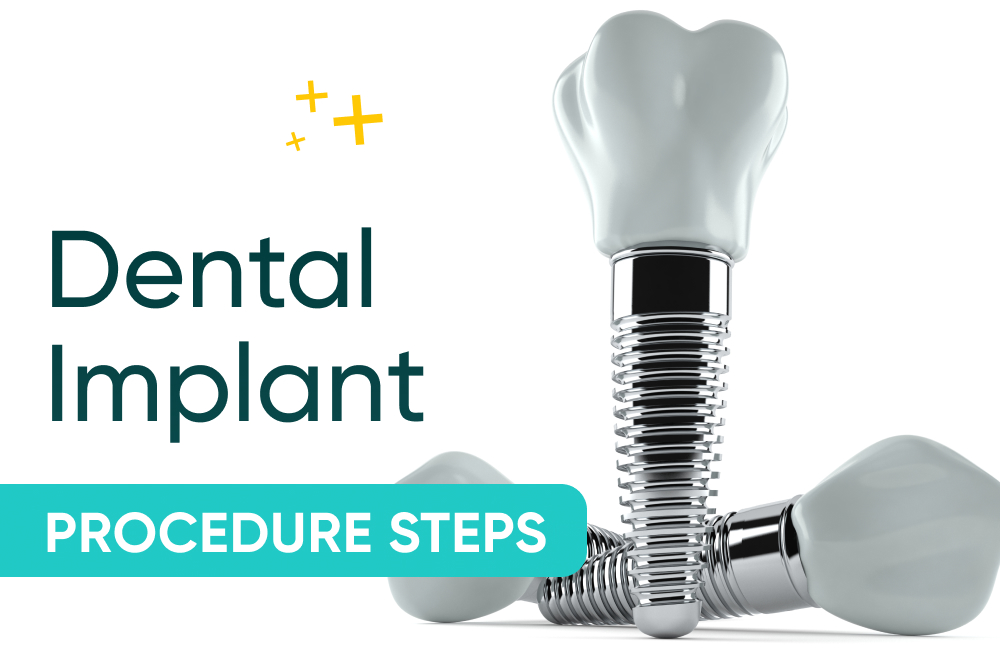Being a dentist is one of the “100 Best Jobs of 2022” according to the latest U.S. News list. This makes a dentistry career attractive, but the question is this: how long does it take to become a dentist?
Any career requires significant time and financial investment. On average, it usually takes 8 years to become a dentist. But if you want to pursue a specialization, you’ll need an additional 2 to 6 years of residency.
Despite the rigorous requirements, the long road to your dental career will pay off. Average annual salaries of dental professionals can reach up to $200,000+, making the effort truly worth it.
In this blog post, we will walk you through the process of becoming a dentist. This will surely help dental students and aspiring dentists in tracking their path in the profession.
Undergraduate degree: 4 years
Before entering dental school, you need a high school diploma and an undergraduate degree. Dental schools don’t require a specific major or college course for admission. Still, being in the medical or science-related track is a plus.
Some schools may offer accelerated admission with just 2 to 3 years of required undergraduate studies. But for the most part, the minimum requirement is a 4-year bachelor’s degree.
Also, most dental schools require that you have specific units on various sciences as part of your undergrad.
Dentistry degree program: 4 years
The next step is to take the Dental Admissions Test (DAT). This exam is conducted by the American Dental Association (ADA) and is a requirement for all U.S. dental schools.
Aside from that, you need to suffice other requirements, including letters of recommendation and a personal statement.
Once you passed the exam, you’ll have to finish the program for four years. After which, you will receive a degree in Doctor of Dental Medicine (DMD) or Doctor of Dental Surgery (DDS). These degrees are practically the same and only differ in name, depending on the school’s preference.
Once you have a dentistry degree, you should take the National Board Dental Exam (NBDE) for a general dentistry license. Take note that you must be licensed in the state where you plan to practice.
Meanwhile, dental students or licensed general dentists can still pursue specializations. This extra schooling will provide training in a specific area of dentistry. Take note that you have to take a separate licensure exam for your chosen specialization aside from the NBDE.
Dental specialties and their duration
1. General Dentistry
Around 80% of dentists in the United States are general practitioners. They are primary dental care providers who perform a variety of procedures, including diagnoses, routine treatments, and more.
General dentists can also perform minor dental surgeries. They also provide oral health education and in-office checkups.
Moreover, a general dentist doesn’t really undergo specialization. They can practice right after finishing the dental program and passing the licensure exam. Nevertheless, general practitioners can pursue a dental specialization later on.
2. Pediatric Dentistry
Those who wish to pursue a pediatric dentistry specialization will undergo an additional 2-year residency program. This is on top of the four-year dental degree.
This specialization focuses on dental procedures for young patients. Aside from practical dentistry skills, dental students will also learn about child psychology and pediatric pharmacology. Students will also receive training in other relevant areas of this specialization.
After finishing the residency program, pediatric dentistry students need to pass the certification process.
3. Dental Public Health (DPH)
Dental public health practitioners are not the usual dentists you’ll see in clinics. A public health dentist works in communities to deliver dental health services.
This specialization allows dentists to perform dental practice and work in the academe at the same time. In this area of practice, dentists focus on preventing and controlling dental diseases through community-based initiatives.
Overall, the residency period for this specialization takes 2 years. After that, students need to secure certification from the American Board of Dental Public Health (ABDPH).
4. Endodontics
The endodontics specialization includes a 2-year residency program. This study is focused on clinical training to treat diseases affecting the interior of the tooth.
Endodontists are responsible for the evaluation, diagnosis, and treatment of complex tooth problems. They are also called ‘root canal specialists’ and they deal with issues with the blood vessels, nerves, and tooth pulp.
5. Prosthodontics
The prosthodontics specialization requires a 3-year residency program and advanced education. Some dental schools also offer a master’s degree after finishing the program.
By profession, prosthodontists are experts in restoring jaw structures and missing teeth. These dentists are trained for cosmetic procedures, including crowns, bridges, and implants. They are also the ones to consult for temporomandibular disorders.
6. Periodontics
The residency period for periodontics takes 3 years. This program will train dental students to diagnose and treat a variety of gum diseases. This includes periodontal disease and other complex gum conditions.
Aside from that, certified periodontists can also perform procedures like root debridement, root scaling, and tooth implants.
For severe gum problems, periodontists can also conduct surgical treatments. They can also provide cosmetic treatments related to the gums.
7. Orthodontics
An orthodontics residency program is usually 2 to 3 years long in an accredited school.
Orthodontists are trained to fix teeth misalignment. These specialists usually work with teens and young adults to correct an improper bite.
Aside from that, orthodontists can also address jaw irregularities. They can also perform all the procedures that a general practitioner performs.
8. Oral and maxillofacial surgery (OMS)
Of all dental specializations, oral and maxillofacial surgery has the longest residency period. Those who wish to specialize in this area will need to finish a 6-year program.
Specialists in this field are experts in mouth, jaw, and facial surgery. They perform intensive restorative procedures for facial injuries, trauma injuries, TMJ, pre-prosthetic conditions, and more.
OMS specialists must be board-certified and recognized by the American Dental Association. Due to the complexity of the specialization, there are only 9,000+ oral and maxillofacial surgeons in the U.S.
How to choose your dental specialty
If you’re an aspiring dentist, it can be challenging to choose the specialization you want to pursue. To help narrow down your options, you should consider the following points:
Think about the procedures that interest you
If you prefer working with kids, pediatric dentistry might be a suitable option for you. Meanwhile, if you want to provide primary dental services, general dentistry is also a great track to follow.
Consider your salary goals
Dentists are paid differently based on their specializations. In general, specializations that take longer to finish will yield a higher income. On this note, oral and maxillofacial surgeons tend to have the highest salaries.
Try shadowing a dental specialist
If you’re still unsure of your chosen specialization, you can try shadowing a specialist in that field. This way, you’ll have first-hand experience with patients to see if it’s the path you want to take. It will allow you to picture yourself in the practice even before you sign up for a residency program.
Consider the demand for the specialization
Many dental students often consider the demand for a specific dental specialization. Some will go for the most in-demand expertise to fill the gap in the industry. You can consider this aspect to help you choose the specialization that suits you.
Summary
How long does it take to become a dentist? In general, it takes at least 8 years to be certified as a general practitioner. But if you wish to pursue a specialization, you need to undergo around 2 to 6 years of further studies.
Overall, becoming a dentist is challenging, but it’s very rewarding profession. As a dentist, you can help a lot of people unleash their best smiles.
Here at NoHo Family Dental, this is exactly what we do. We specialize in general, orthodontic, and cosmetic dentistry that will make you more confident with your smile.




